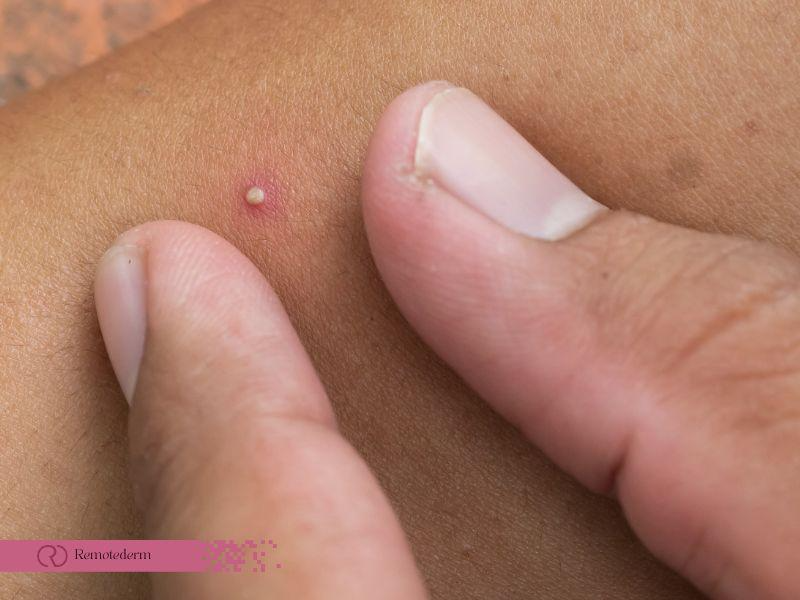Whiteheads are a common type of acne that can appear on the face, neck, chest, and back. They are small, white or flesh-colored bumps that form when oil, dead skin cells, and bacteria become trapped within the pores. While they are not as noticeable as other types of acne, they can still affect a person’s self-esteem and lead to more severe forms of acne if left untreated. This article aims to provide the ultimate guide to treating whiteheads, including the causes of whiteheads, what doesn’t work in treating them, and what does work. By understanding the different types of whiteheads and effective treatment options, it is possible to manage them and achieve clearer, healthier skin.
Understanding Whiteheads
Whiteheads, also known as closed comedones, are a common type of acne that can appear on the face, neck, chest, and back. They are small, white, or flesh-colored bumps that form when oil, dead skin cells, and bacteria become trapped within the pores. Discover everything you need to know about comedones, including causes, treatment options, and prevention tips, to achieve clear, healthy skin.
While whiteheads are not as visible as other types of acne, such as blackheads or cysts, they can still be a nuisance and affect a person’s self-esteem. They can also lead to more severe forms of acne if left untreated.
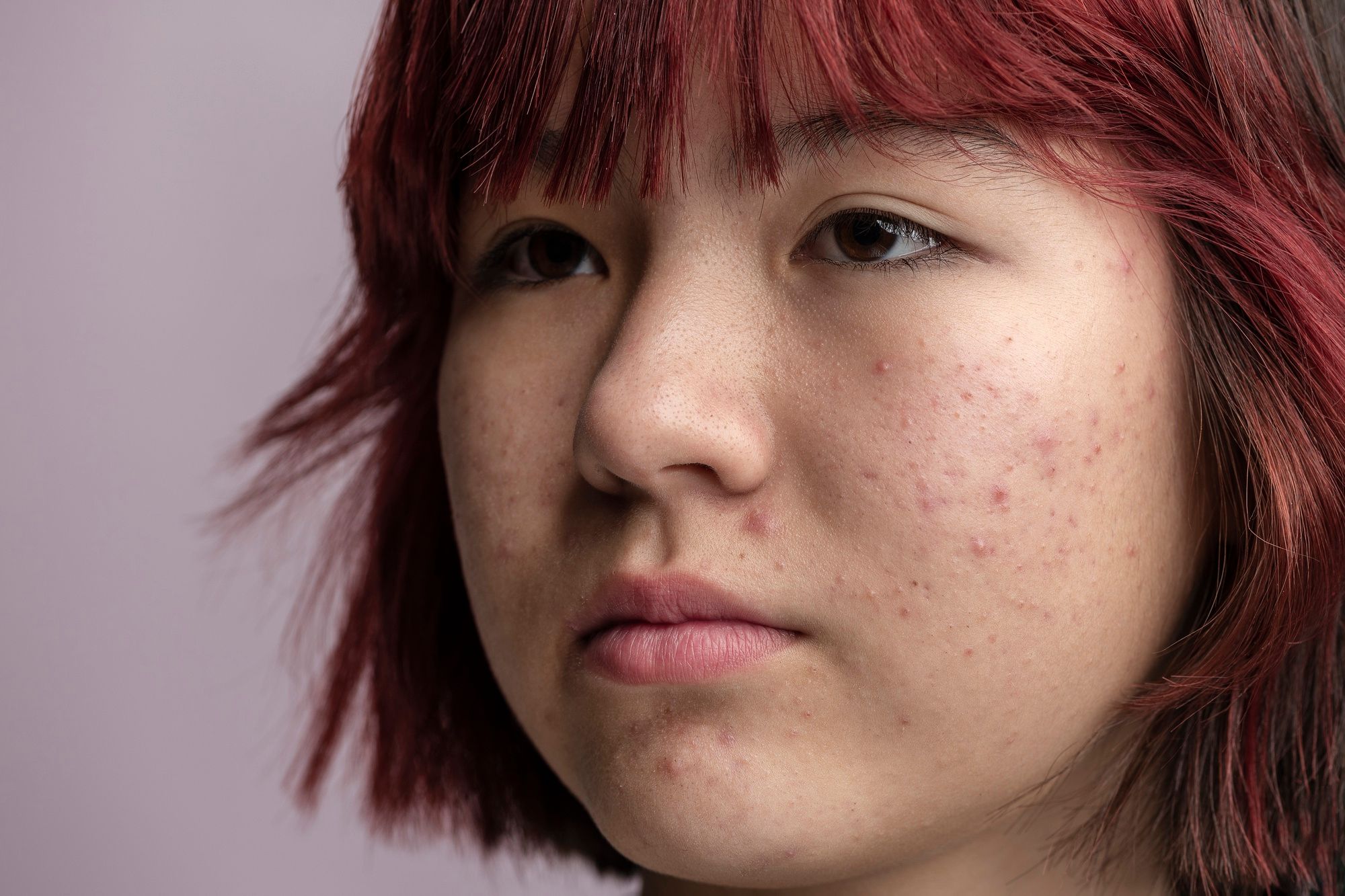
To properly understand whiteheads, it’s important to know that they are a type of acne that can occur due to a combination of factors. These can include genetics, hormonal changes, and certain lifestyle habits.
Whiteheads can also vary in size, shape, and severity. Some may be very small and barely visible, while others can be larger and more inflamed. Understanding the different types of whiteheads can help determine the most effective treatment options. Learn everything you need to know about acne outbreaks and scarring and discover effective solutions to achieve clear, healthy skin.
It’s important to note that while whiteheads can be frustrating to deal with, they are a common and treatable condition. With the right knowledge and approach, it is possible to effectively manage whiteheads and achieve clearer, healthier skin.
Causes of Whiteheads
Whiteheads are a type of acne that can occur due to a combination of factors. Understanding the causes of whiteheads can help prevent their formation and reduce the risk of developing more severe forms of acne. The following are among the most frequent factors that cause whiteheads:
- Excessive oil production: When the skin produces too much oil, it can clog the pores and lead to the formation of whiteheads.
- Dead skin cells: When dead skin cells accumulate on the surface of the skin, they can mix with oil and bacteria to clog the pores and cause whiteheads.
- Hormonal changes: Fluctuations in hormone levels, such as those that occur during puberty, menstruation, or pregnancy, can increase oil production and lead to the formation of whiteheads.
- Genetics: Some people may be more prone to developing whiteheads due to their genetics.
- Certain medications: Certain medications, such as corticosteroids or birth control pills, can increase the risk of developing whiteheads.
- Poor diet: A diet high in processed foods, sugar, and dairy products may increase the risk of developing whiteheads.
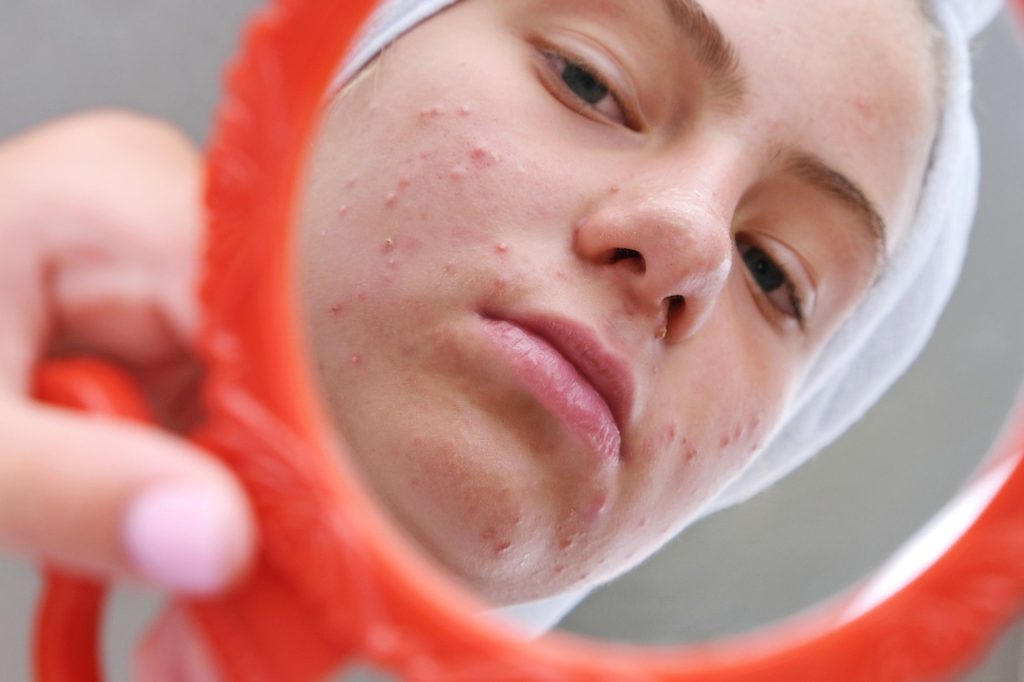
It’s important to note that while these factors can contribute to the formation of whiteheads, they are not the sole cause. Factors such as stress, environmental pollutants, and certain skincare products can also play a role.
What Doesn’t Work to Treat Whiteheads
If you’re struggling with whiteheads, it’s important to know what doesn’t work so you don’t waste your time and money on treatments that won’t help. Here are some common treatments that don’t actually work:
- Popping whiteheads: While it may be tempting to pop your whiteheads, it’s actually one of the worst things you can do for your skin. Popping whiteheads can push bacteria deeper into your pores, causing more inflammation and leading to scarring.
- Over-washing: While it’s important to keep your skin clean, over-washing can actually strip your skin of its natural oils, leading to more oil production and more whiteheads. It’s recommended to cleanse your face twice a day using a mild cleanser.
- Harsh exfoliation: While exfoliating can help remove dead skin cells, using harsh exfoliants can actually damage your skin and make whiteheads worse. Stick to using gentle exfoliants no more than twice a week.
- Toothpaste: While some people swear by using toothpaste to dry out whiteheads, it can actually cause more harm than good. Toothpaste contains ingredients that can be irritating to the skin and may even cause chemical burns.
- Home remedies: There are many home remedies out there that claim to treat whiteheads, but most of them have no scientific evidence to back them up. Some may even be harmful to your skin. Stick to treatments that have been proven effective through research and clinical trials.
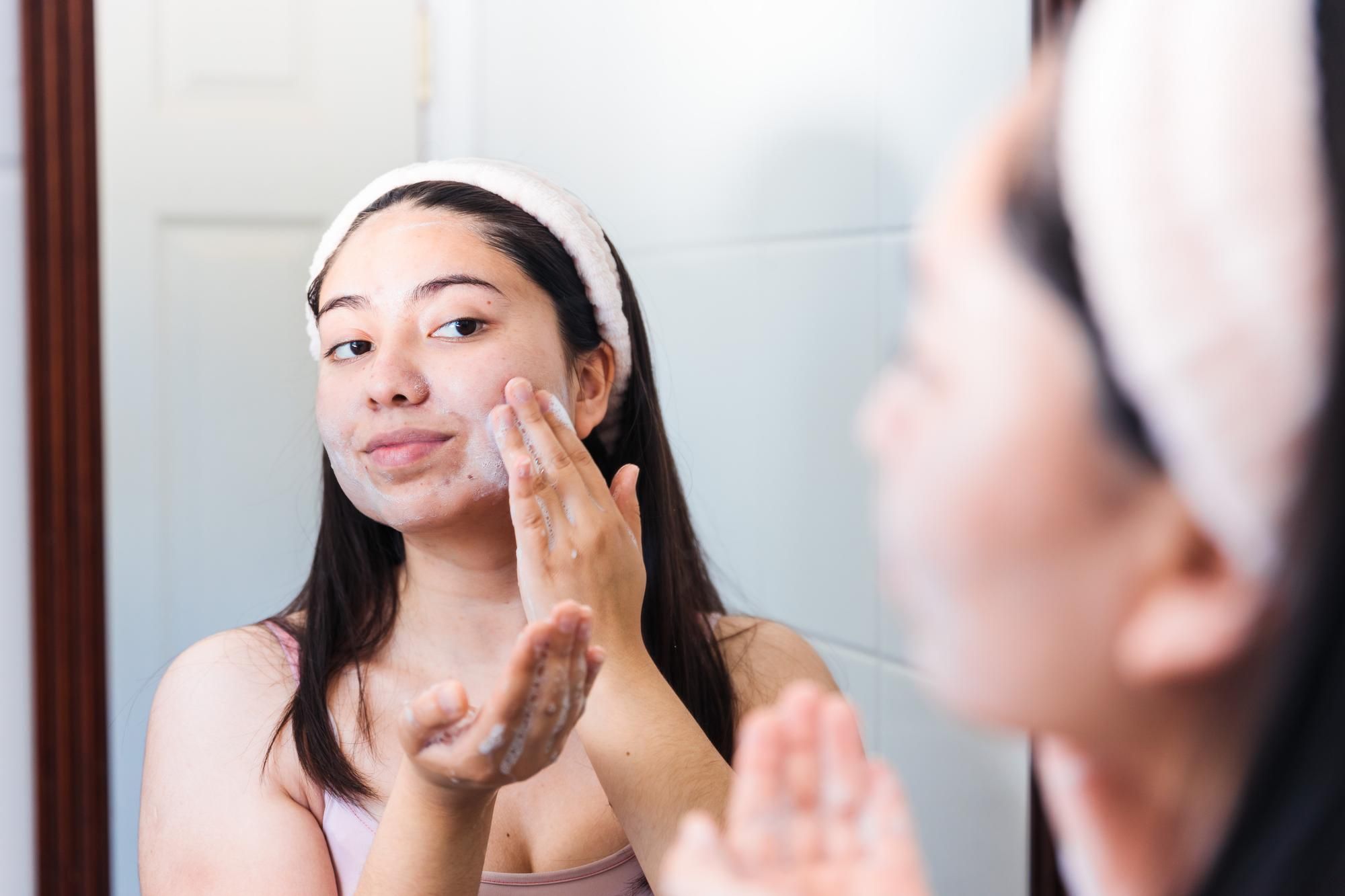
By avoiding these ineffective treatments, you can focus on methods that have been proven to work, such as salicylic acid or benzoyl peroxide treatments, retinoids, or professional treatments from a dermatologist.
What Does Work to Treat Whiteheads
Now that we know what doesn’t work, let’s take a look at what actually does work to get rid of whiteheads:
- Salicylic acid: Salicylic acid, classified as a beta-hydroxy acid, is capable of exfoliating the skin and clearing up clogged pores. It also has anti-inflammatory properties, which can aid in reducing swelling and redness. You can find salicylic acid in various forms, including cleansers, toners, and spot treatments.
- Benzoyl peroxide: Benzoyl peroxide is an antibacterial agent that can help kill the bacteria that cause whiteheads. It is also anti-inflammatory, which means it can help with redness and swelling. Benzoyl peroxide can be found in over-the-counter creams, gels, and spot treatments.
- Retinoids: Retinoids are a type of vitamin A that can help regulate oil production and prevent dead skin cells from clogging your pores. They’re also anti-inflammatory, which means they can help with redness and swelling. Retinoids can be found in prescription creams, gels, and serums.
- Chemical peels: Chemical peels use acids to exfoliate your skin and unclog your pores. They can also help reduce the appearance of whiteheads and other types of acne. Chemical peels are typically performed by a dermatologist, but there are also at-home options available.
- Topical antibiotics: These are prescription medications that can help to kill the bacteria responsible for causing whiteheads. Some common topical antibiotics include clindamycin and erythromycin, however, they are not much effective in addressing whiteheads.
- Extraction: This is a procedure that involves manually removing whiteheads from the skin. It should only be performed by a trained professional to prevent scarring and infection.
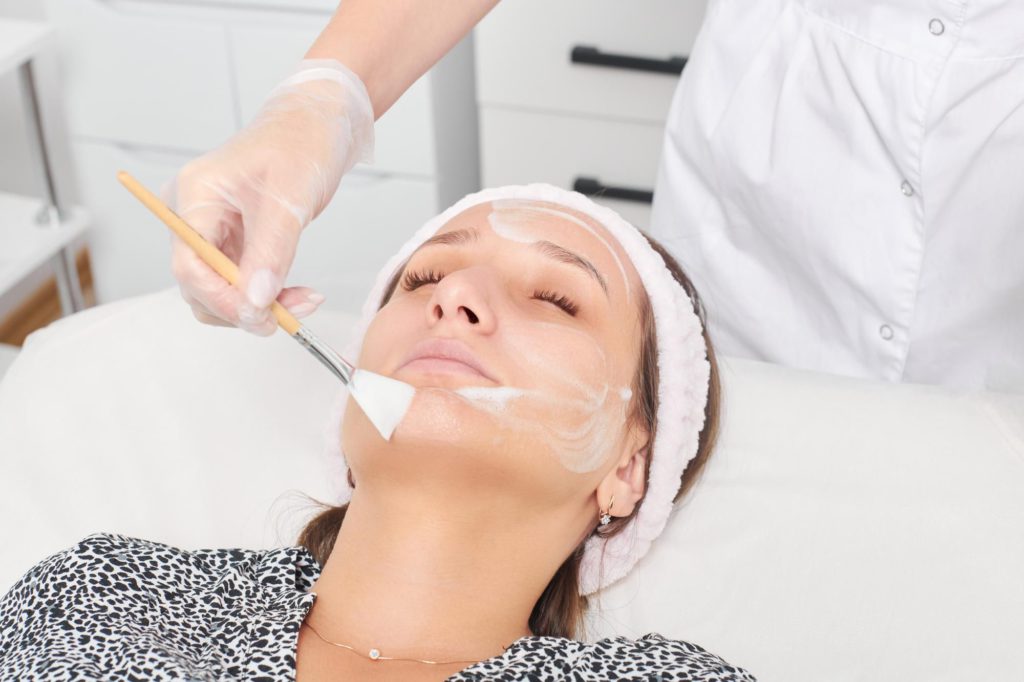
It’s important to note that while these treatments can be effective, they may take time to work and may not be suitable for everyone. To determine the best course of treatment for your specific needs, consult with a dermatologist. Additionally, it’s important to maintain a consistent skincare routine and avoid picking or squeezing whiteheads to prevent further irritation and scarring.
If you’re dealing with whiteheads and seeking expert guidance, consider consulting a dermatologist specializing in acne prescriptions through RemoteDerm. Our experienced dermatologists can assess your specific whitehead issues and recommend personalized treatments to clear your skin effectively. Don’t let your skin condition affect your self-confidence; take the first step towards healthier skin by getting an online consultation today.
How to Prevent Whiteheads?
While there are various treatments available to get rid of whiteheads, preventing them in the first place is always a better option. Here are some tips to help prevent whiteheads:
- Keep your skin clean: One of the most effective ways to prevent whiteheads is to keep your skin clean. This means washing your face twice a day, especially after sweating or exercising.
- Avoid touching your face: Your hands are home to a lot of bacteria and germs, so touching your face can transfer these bacteria to your skin and cause whiteheads. Hands should be washed frequently, and you should avoid touching your face as much as possible.
- Use non-comedogenic products: Non-comedogenic products are designed to not clog your pores, which can help prevent whiteheads from forming. Look for products with the label “non-comedogenic” on the packaging.
- Don’t over-exfoliate: While exfoliating can help remove dead skin cells and prevent clogged pores, over-exfoliating can actually damage your skin and cause more whiteheads. Ideally, exfoliate just once or twice per week.
- Use oil-free products: By lowering the quantity of oil on your skin, oil-free products can aid in the prevention of whiteheads. Search for items with the designation “oil-free” on the packaging.
- Eat a healthy diet: A diet high in sugar and processed foods can contribute to the development of whiteheads. Eating a balanced diet rich in fruits, vegetables, and lean protein can help prevent whiteheads from forming.

By following these tips, you can help prevent whiteheads and achieve clear, healthy-looking skin.
Conclusion
In conclusion, whiteheads are a common type of acne that can be treated with effective methods, such as salicylic acid, benzoyl peroxide, retinoids, and professional treatments from a dermatologist. Avoiding ineffective treatments like popping whiteheads, over-washing, harsh exfoliation, and home remedies can help to prevent the development of more severe forms of acne.

However, seeking treatment from a dermatologist may be difficult for some people due to time constraints and distance. Fortunately, Remotederm online dermatology consultation services provide easy access to professional dermatological advice from anywhere, eliminating the need for long waits to visit dermatologists in person. Ultimately, by understanding the causes of whiteheads and adopting the right approach, it is possible to manage them and achieve clearer, healthier skin.
FAQs
- Can stress cause whiteheads?
Certainly, stress can increase oil production and cause hormonal changes that lead to the development of whiteheads. Try relaxing activities like yoga, deep breathing, or meditation to lower your stress levels.
- Are there any lifestyle changes I can make to reduce the risk of whiteheads?
Yes, you can reduce the risk of whiteheads by maintaining a healthy diet that is low in processed foods, sugar, and dairy products. You should also stay hydrated and get enough sleep to promote healthy skin.
- How long does it take to see results from whitehead treatments?
The length of time it takes to see results from whitehead treatments can vary depending on the severity of your condition and the type of treatment you are using. Some treatments may take several weeks or even months to produce noticeable results.
- When should I see a dermatologist for whiteheads?
You should see a dermatologist for whiteheads if you have tried over-the-counter treatments without success, if your condition is severe or painful, or if you have developed scarring or hyperpigmentation. A dermatologist can recommend more effective treatments, such as prescription medications or professional procedures like chemical peels or microdermabrasion.
- Can whiteheads indicate a more severe skin condition?
While whiteheads are typically a mild form of acne, they can sometimes be a symptom of a more serious skin condition such as rosacea or folliculitis. It’s important to consult with a dermatologist if you experience persistent or severe whiteheads.
